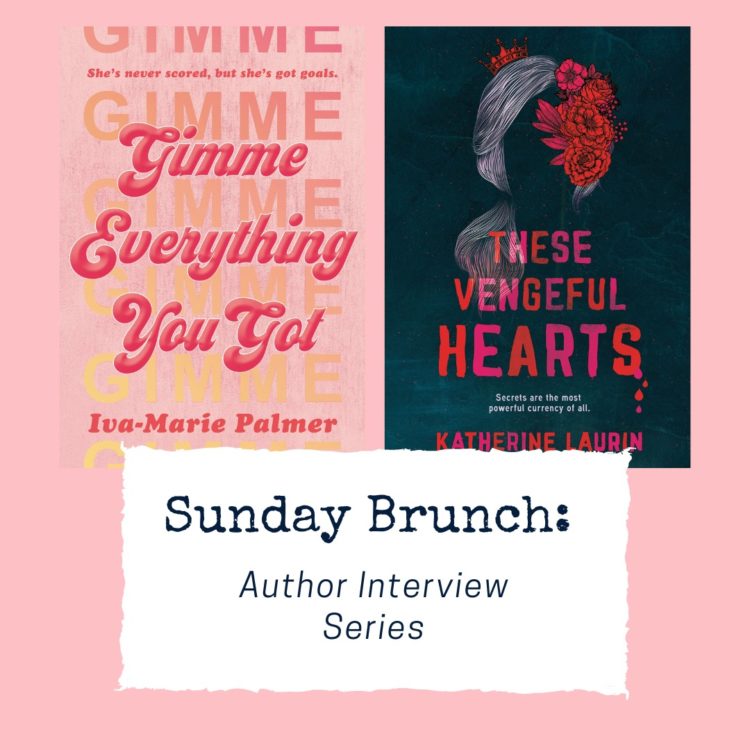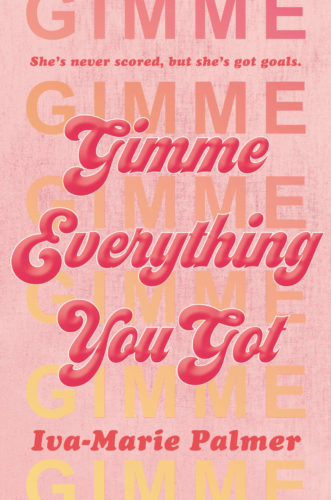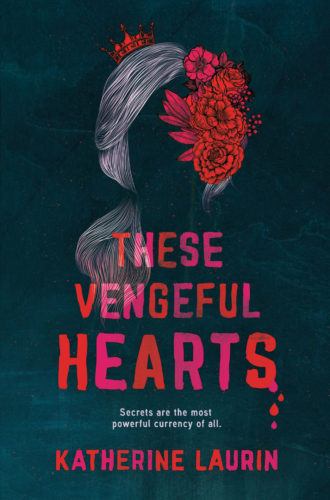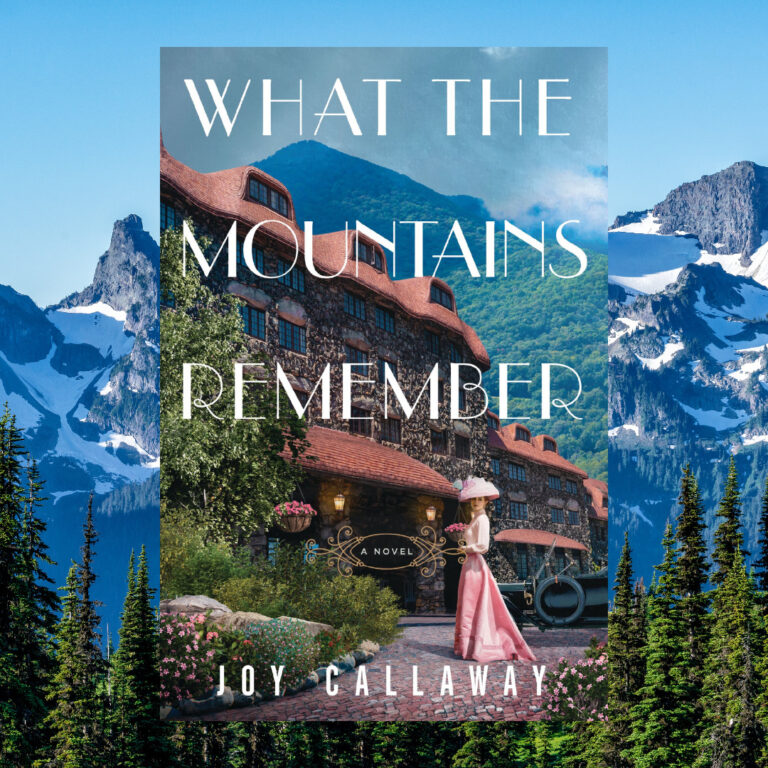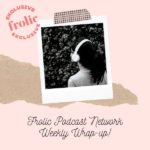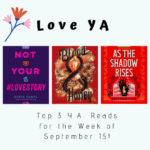[Note from Frolic: We are so excited to welcome you to our Sunday Brunch interview series! Today, we have Q&As with authors Iva-Marie Palmer and Katherine Laurin! Up first, Iva-Marie Palmer.]
Aurora: What was your inspiration behind your most recent novel?
Iva-Marie: The simplest answer is the scene in Fast Times at Ridgemont High where Judge Reinhold’s character is watching Phoebe Cates get out of the pool in her red bikini. The vision of her unspools into an extremely vivid fantasy for him. (And, problematic or not, I can say I’m right there with him and you can’t take your eyes off Phoebe in that scene. I get it, Judge.) So, I started to imagine the young woman’s version of that scene, with a guy who on sight overpowers her mind and she can’t not fantasize about him. And that’s my character, Susan Klintock, seeing this new coach at her school, Bobby McMann, for the first time. I wanted to write about the power of a crush that knocks a person out like that.
That vision – both mine and Susan’s – led to thinking about my own crushes – at first nostalgically, but then in more detail – both how frustrating it could be to be obsessing over someone who didn’t know I was alive, but also how sometimes my own boy craziness had a payoff that wasn’t the boy. I played a number of sports in high school (not soccer, as my school didn’t have a girl’s team), and one perk of athletics was you came in contact with the boys’ teams sometimes. We’d use the weight room for swimming when the football team was there or, on track, the boys and girls had to run some of the same practice drills, so there were opportunities to flirt with the boys’ teams, which often took the form of showing off a little. I don’t know that my flirting methods always worked as flirting because sprinting as fast as I could meant I turned bright red and bench pressing some extra weight led to some really contorted facial expressions. But trying to show off meant I started to improve as an athlete. And from there, I realized I honestly loved athletics, and competing.
So, by setting the book in 1979, as Title IX was creating more athletic opportunities for women (albeit imperfect ones), I had this chance to think about a girl in a school without many athletic offerings who believes her only reason to try out for a team is the hot coach – who, by the way, seems like the only guy in school who respects women’s athletic endeavors — but who then discovers that the sport and her competence at it is its own reward. I think sometimes we fault people who try a new thing or take on a new interest to get their crush’s attention, but if the result is that you love the random hobby you tried or new band you’d never bothered to listen to before, it shows that a crush as motivation to expand your horizons is hardly all bad.
What character in this novel do you most relate to and why?
I am daydreamy like Susan, my main character, but overall I’m probably most like her friend, Tina, who’s more achievement driven. Where Susan enters the book as someone who’s a bit of a non-participant at their school, Tina’s more goal-oriented, and has thought more about her life beyond high school. But also like me, Tina has her own insecurities in the friendship, which she downplays beneath the veneer of can-do-ness, and I can be like that myself. I don’t always like to ask for help or confess that I don’t have it all under control, but I wrongly have my feelings hurt if someone doesn’t know to ask “hey, are you okay?” Vulnerability – and actually saying, “I’m not okay!” — is definitely something I could work on.
Why do you feel novels with powerful and unique characters are so popular and have such a voice right now?
I mean, I think all the best novels have powerful and unique characters, going way, way back. Like, Jane Eyre is never too far from my thoughts, or so many of Jane Austen’s characters, or a Lily Bart or Countess Ellen Olenska. Even Becky Sharp is such a memorable antihero, and I find her selfishness extremely modern and interesting.
But, what I do like about now is that we are hearing from more and more authors – Black, Latinx, LGBTQ+, neuroatypical, disabled – and THAT is where we’re broadening the spectrum of the powerful and unique characters who will endure so some writer 100 years from now can name them in a list like mine. I hate that it’s taken way too long, and I hate thinking back to my library trips as a kid when I was choosing books to take home and, really, so many characters on the covers and inside looked like and lived like me, but I’m thrilled that the shelves now are far more diverse and representative of the multitude of readers out there. What a gift, honestly, that my book can be peers with books that span so many voices and stories.
Please describe the content of your latest read and what can readers expect from it.
So, it’s 1979 and in Gimme Everything You Got, Susan Klintock is a 17-year-old who for lack of a better word, is extremely horny, and extremely imaginative. She’s also extremely inexperienced and thinks every guy at her school is a letdown so she doesn’t give anyone a chance. Her fantasies all revolve around guys she’ll never meet, and romantic situations she’ll never be in. Susan is the screenwriter and director of a never-ending film where she’s making out with everyone from Han Solo to Roy Scheider, from Jaws.
Everything changes when her school’s new soccer coach – for the first-ever girls’ team – arrives on the scene. His name is Bobby McMann, he wears form-fitting shorts, and he’s foxy with a capital F. Finally, Susan has found a real guy worth all her fantasies – except that he’s so very off-limits. So she decides to try out for the team, because she feels like she at least wants to be in his orbit.
And then, she discovers she’s pretty good at soccer, and that the other girls on the team have their own dramas and yens that help her understand them and herself better.
There’s for sure a feminist lining to the book – Susan hasn’t figured out feminism entirely, but she’s on her way. Where now we’ve realized feminism has to be intersectional, Susan in 1979 is more at the stage where she’s pissed that men get so many privileges women don’t. But at the very least, she’s starting to recognize sexism and to understand that being empowered doesn’t mean every woman’s vision of power looks exactly like yours, but that they all have value. I think, with her foundation, that by now she’d be the kind of sage woman who really gets how feminism and race and class and sexuality all intersect, and she would be joining the quest for more equity and a fairer society for all.
But quick summary, what I think readers can expect most of all is to have fun reading this. I know we’re all trying to survive and stay sane through the pandemic and embracing the hard work of being better citizens who create a more equitable world, but honestly, I set out to write something that was fun as hell to read. I believe I succeeded and believe that seeking and feeling entitled to some pleasure is in and of itself a marvelous political act.
What’s next for you in the books world?
I don’t have anything slated for publication just yet, so I’m not keen to state anything officially, but I recently wrapped up a new middle grade manuscript with my co-writer Larry Schwarz so I hope there’s some news on that soon. I have been tinkering with another middle-grade idea, an adult dark comedy, and I do have a follow-up YA – not a sequel but another book set in Gimme Everything You Got’s suburban Chicago environment, but in modern-day, and exploring class and wealth. But again, a friend asked me my brand and I said, I hope my brand is Fun, so a lot of what I’m doing, even as I tackle bigger questions, really comes down to writing entertaining and funny stuff.
Who is your current favorite writer? Why?
I’m loathe to choose favorites, so I’m going to answer this question as the authors who, if they have something new coming out, I have to read it.
Brandy Colbert – From Pointe onward, Brandy writes books that are so strikingly real that I feel I’ve been invited to walk around in her character’s bodies, and to inhabit their emotional lives. Her new middle grade is outstanding, and I can’t wait for her first non-fiction book, about the Tulsa Race Massacre of 1921.
Mary McCoy – Mary has delved into Los Angeles noir, into a bizarre summer camp mystery, and a teen political thriller inspired by I, Claudius, and what I adore is she tackles each book with the expertise of someone who’s been writing that style of story her whole career but then switches things up so thoroughly her next book is just as intricately crafted but never anything like what she wrote before.
Curtis Sittenfeld – Curtis Sittenfeld had me at Prep, which I reread while writing this book. No matter her subject matter for novels or short stories, she’s able to tap into the parts of us that feel like misfits and her characters always feel like they’re talking right to that part of me.
Megan Abbott – Can I call her the Grand Dame of Bad Girls? I love that from her early noir books on, she has never worried about making her women likeable, and that is why they are absolutely magnetic. On the page, she’s able to extract these mean or villainous aspects many of us have and often hide. Hers often give way to more blood and violence, but never without reason, and it’s so cathartic.
And then, a few books I’ve read recently that I’ve been recommending a lot: Severance by Ling Ma; Real Life by Brandon Taylor; and Circe by Madeline Miller. Also, I love the current revival of the romantic comedy with books by Jasmine Guillory, Helen Hoang, Alisha Rai, and Emily Henry.
As to books I’m looking forward to: The Mall by Megan McCafferty, whose Sloppy Firsts series I devoured and am about to reread and This is Not the Jess Show, by Anna Carey, which has such a compelling premise, I’m dying for it. And Never Look Back, Lilliam Rivera’s upcoming retelling of the Orpheus and Eurydice myth. She’s another author who is so able to switch things up in terms of what types of stories she tells and anyone who loves coming-of-age romances has to pick up her first book, The Education of Margo Sanchez.
Any writing advice for aspiring writers?
If you can’t tell by my extensive list above, I will always put reading a lot at the top of my advice list. In terms of concrete “how to do the work” advice, I’m more reluctant to throw out tips because everyone is different, and you need to find what works for you. I’ve known writers who carve out a single day where they do all their writing each week, some writers who manage to sit down for the same two to five hours each day and other writers, who have completed manuscripts by typing in their Notes app while riding the bus.
When I started out, I was still working full-time and wrote in the morning before I went to work, and sometimes managed a late night if I needed to finish a book on deadline. I since went to full-time writing but full-time is tricky to say if you’re writing and have two kids, or other responsibilities. The way my life is, writing is not an eight-hours-a-day job.
I had a steadier output when school was taking place in school, and right now in the age of lockdown and digital school, I’m definitely having to write in the spaces when my kids are occupied, which means I can’t always sit with my work as long as I want to. But I do believe there’s power in getting even a little done each day and chipping away at a draft until it’s finished. I think most first drafts are shitty but when I’m working on one, I often will schedule a few hours each week where, instead of writing from the point where I left off, I read what I have written so far, and make some edits and cuts or fine-tune lines as I go, in hopes that the draft has some solid stuff to work with. It works for me, but not for everyone, because I know some writers are prone to get stuck on one sentence and then feel bad about a lack of progress.
My final piece of advice is to declare a draft as done as you’re going to get it. I have to decide to stop tinkering and turn my draft over to a reader or, if I’m lucky and the manuscript is going to be published, my editor. Getting that external participation really helps me because at a certain point, I don’t know if I’m making a book better or worse.
Next up, Katherine Laurin!
Aurora: What was your inspiration behind your most recent novel?
Katherine: I’ve always been fascinated with secret societies. Writing the structure of the Red Court—their inner machinations and their history—was one of my favorite parts. This story started out as an image in my head of a girl opening her locker and receiving an invitation to a secret society. I know it’s a story, when I start asking questions. Who is she? What does this invitation mean?
What character in this novel do you most relate to and why?
This is a hard one. I relate to all of them in at least some small way. I have to find a foothold with each character that acts as my doorway into their perspective. I’d say I relate most to Ember, but that may be because I spent the most time with her. Ember is dedicated and the kind of person who can’t do anything halfway. If she is in something, even a malicious secret society that she’s trying to dismantle from within, she goes in all the way.
Why do you feel novels with powerful and unique characters are so popular and have such a voice right now?
I think that we’re all looking for books with characters who own their narrative. I love reading stories with complex characters making all the wrong choices for all the right reasons. I want to go on a journey with them and feel like I’ve seen the world from a different point of view.
Please describe the content of your latest read and what can readers expect from it.
These Vengeful Hearts is a revenge story. It was so fun to write someone who I would consider to be a good person doing bad things. The story really examines the lengths a person is willing to go to achieve an objectively good goal, even when that means compromising the best parts of themselves in order to get what they want. The main character, Ember, struggles to reconcile the darker parts of herself that enjoy the power that comes from her role in the Red Court and the part that of her that knows that they need to be stopped.
What’s next for you in the books world?
I’m always working on my next project! I’m editing another YA thriller right now.
Who is your current favorite writer? Why?
Not to be a terrible cliché, but I can’t pick just one. There are so many talented voices to love. Some of my favorites are Kara Thomas, Gretchen McNeil, Courtney Summers, Tiffany D. Jackson, and Karen McManus. All for the same reason. Their stories are gripping, taking hold of you until it’s 1:00 AM and you have a finished book.
Any writing advice for aspiring writers?
I’d say everyone should find a group of other writers. Writing can be lonely, and the key is to find other writers who you can support and who can support you when things get hard. And, don’t give up! If you love writing, then keep going. I always say the only way to fail as a writer is to quit.

